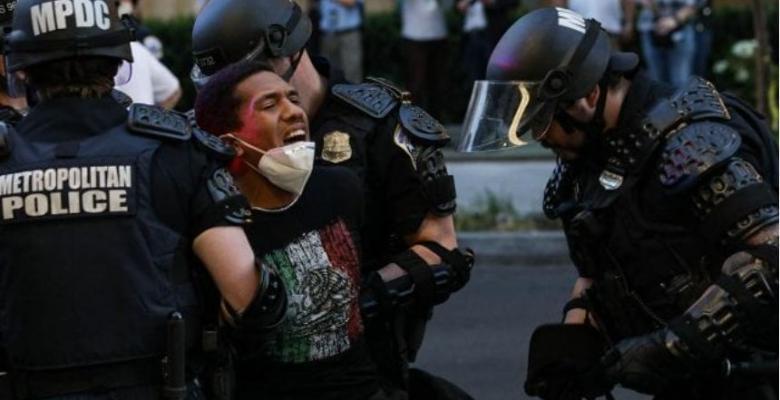U.S.: The most racist country

I knew by accident that his father had petitioned for him and he would soon leave Cuba. Therefore, even though I am not a family member, I felt the Revolution had lost another battle and I quickly warned him and offered a piece of advice:
“I know you are leaving and, even though I do not like it, I do not want you to have a bad experience. Firstly, you should complete your Computer studies. Secondly, try to learn English as soon as possible. Thirdly, try not to mingle with those Cubans who embrace ignorance, get the easy road and became mercenaries and lastly, do not forget you are a mulatto man, and even though racism prevails all over the world, that is the most racist country worldwide.”
Seven years later, his wife, a white American woman, told me while visiting Cuba, how useful my warnings were as well as the love of his husband for his homeland, and the respect and devotion both had on their work despite the increasingly signs of xenophobia and prejudice in most of American people.
Eradicating racism and xenophobia has never been a consistent goal for U.S. governments even though they chose a black man as the U.S. President for two terms, and they now have a Jamaican-Asian-origin woman as a Vice President.
I would say that this situation is somehow shocking and unexpected. Few days ago, some U.S. media revealed that in the regarded as the most Democratic administration in the history of the U.S., that of Franklin Delano Roosevelt, black people were banned from accessing residential and suburban neighborhoods.
In 1933, the New Deal offered hope and opportunity to millions of Americans affected by the Great Depression, but it did not benefit everyone. Although this series of federal programs, public works projects, financial and regulatory reforms helped thousands of people acquire property, they completely excluded African American families.
Racially-based lending standards, which had been the work of the Federal Housing Association, prevented black families from entering suburban neighborhoods. But why exactly were black Americans banned from settling in the suburbs? And although nothing was officially said, this type of policy deepened the racial inequality that has always existed in the United States.
SLAVERY AND REPRESSION
Slavery has left a deep and lasting legacy in the country, which can be seen through generational traumas.
Racial discrimination permeates all contacts with so-called law enforcement, from the first contact, sometimes already at school, through racial profiling, arrest, detention, conviction and disenfranchisement in some state. In each of these aspects, the available data points to a clear disproportionate impact on people of African descent.
Difficult issue, virtually unsolvable in capitalism, regardless of the fact that the United States is considered the richest country on the planet, because inequality dominates there.
This would require addressing and breaking the cycle of poverty on people of African descent, including urgently changing the way poverty, homelessness, drug abuse and mental illness are addressed, and moving from a criminal justice response to one focused on human rights.
A group of UN experts concluded that the United States must step up its efforts to end racial discrimination that affects people of African descent and ensure accountability for violations committed. In addition, human rights-focused responses will need to be devised when addressing issues such as homelessness, mental illness, or drug addiction.
The UN International Mechanism of Independent Experts to Promote Racial Justice in the Context of Law Enforcement called on the government to redouble its efforts to promote accountability for violations committed by police forces in both, those that have taken place and those that may happen in the future.
The bottom line is that a statewide response is needed that leads to federal policing standards, and government-wide reforms that redefine the mission and scope of policing are needed.
"While we acknowledge that most of these efforts would need to be carried out at the state and local level, we call on the federal government and Congress to continue to demonstrate leadership, including allocating federal funds to state-level policy initiatives, adopting national standards on use of force and undertaking federal criminal investigations into cases of its excessive use by police and security bodies," said Juan Méndez, an expert within the Mechanism.
Tracie Desee, also expert within the Mechanism, added that they still need “stronger action, even from federal authorities, to pave the way to stronger accountability measures for past and future violations.”
“This includes driving binding oversight mechanisms; the allocation of adequate resources; and the provision of robust reparation, support and rehabilitation to victims, including the access to justice and physical and mental health services,” she stated.
Translated by Sergio A. Paneque Díaz / CubaSí Translation Staff













Add new comment